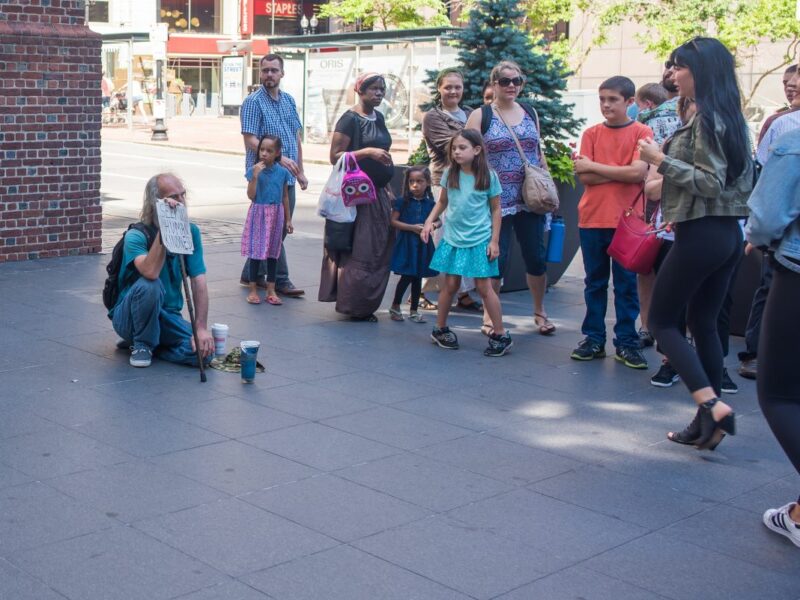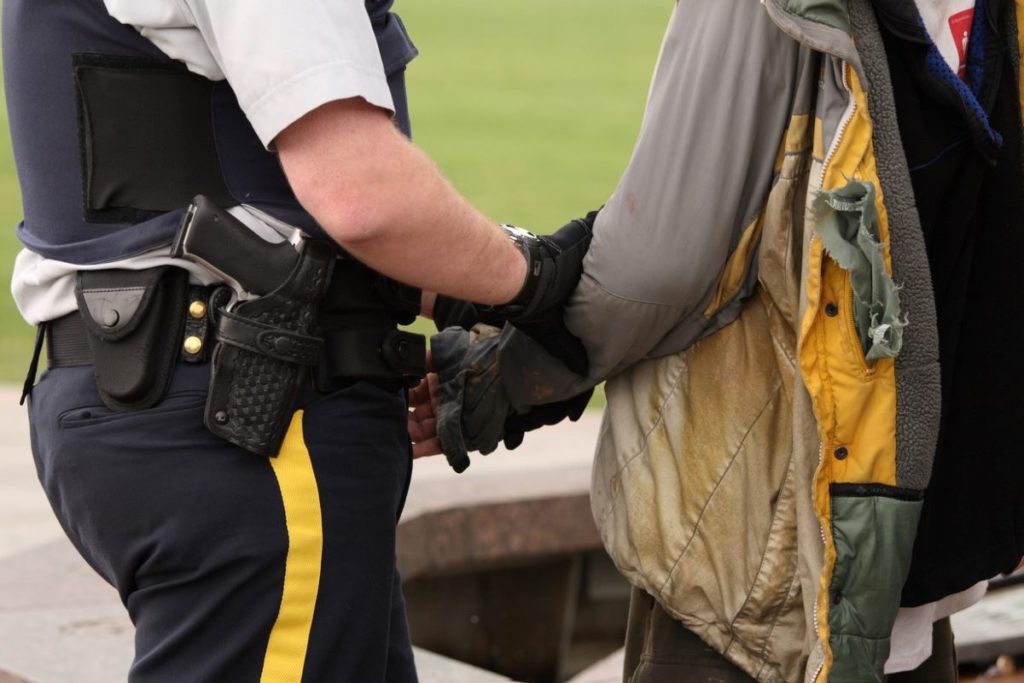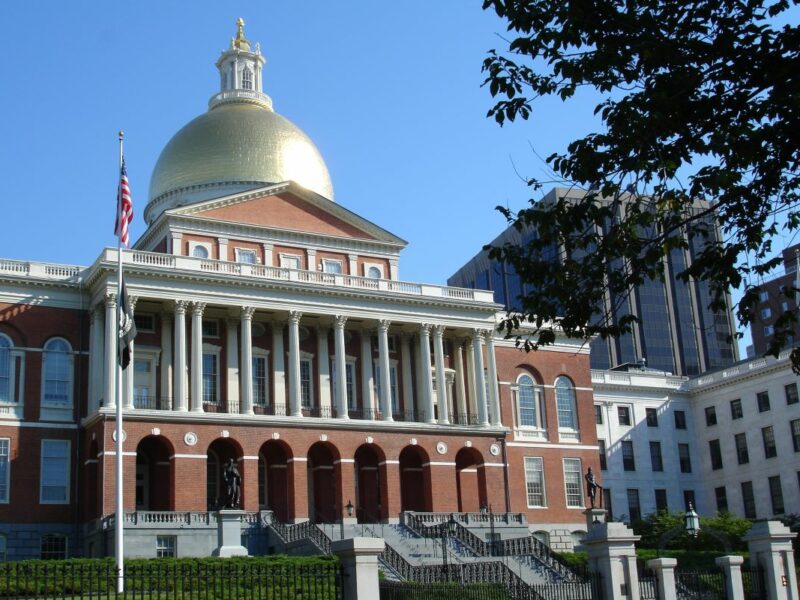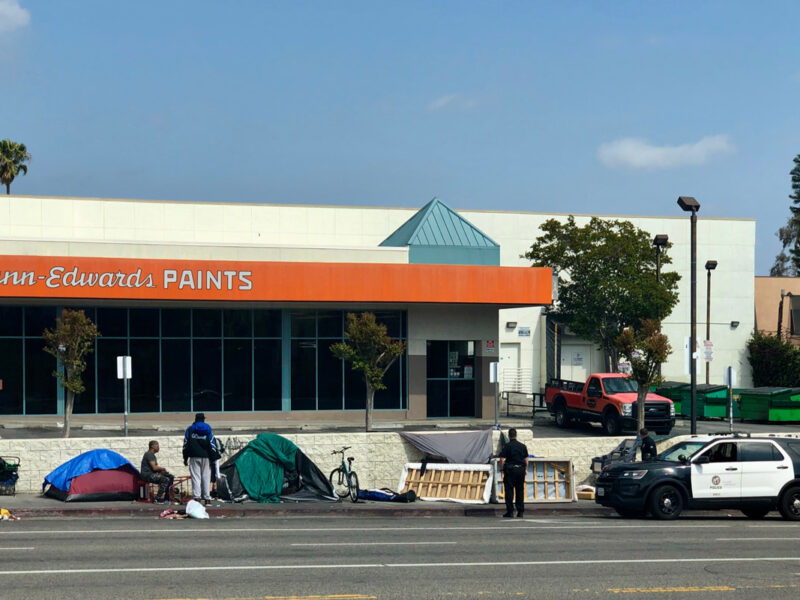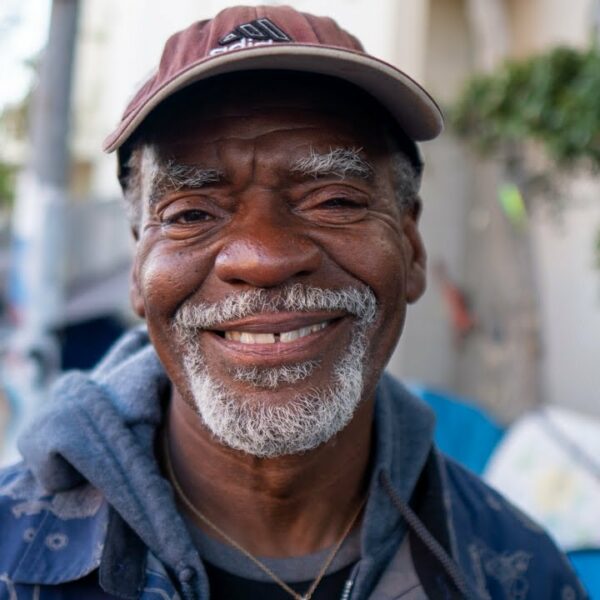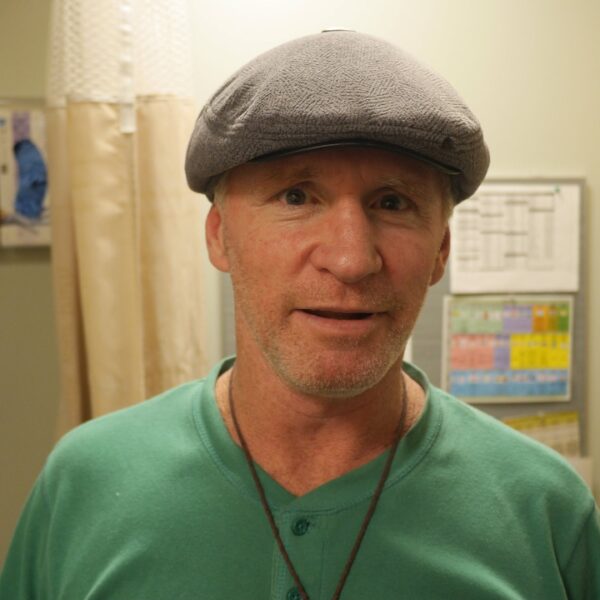In a word, don’t.
If you’ve ever found yourself wondering if you should call the police on a homeless person, the answer is probably no.
Unfortunately, many people feel entitled to call the cops any time they are made uneasy or uncomfortable by a homeless person.
In many of these cases, little to no interaction actually takes place. The caller was never in any sort of danger. Yet the homeless person is still subjected to a potentially harmful visit from law enforcement. All because someone decided they didn’t want to have to look at or share space with that person.
The bottom line is this:
Police over-involvement with homeless people causes harm, both on an individual level and an institutional one.
This guide will help you determine when a call to the police is warranted and when it isn’t. I’ll also give you alternative numbers to call, so be sure to save those in your phone.
Let’s get started!
The ‘Small’ Price of Police Over-Involvement
Well, I’m calling it the small price, but if you’re the one who’s paying, it’s not that small at all. The “small” price is the negative impact police encounters can have on a homeless person, at the individual level.
What is that impact?
To answer that, let’s look at what happens during a typical interaction:
- You see someone you think is homeless. Maybe they’ve spoken to you, maybe they haven’t.
- Either way, you’re annoyed or inconvenienced by their presence, so you call the police.
- The police come talk to the person, ask questions, and more than likely, tell them to move along.
On the whole, not a bad interaction. All you’ve basically done is transfer your sense of annoyance and inconvenience onto the other person. Sure, they probably have more than their fair share of problems to deal with already, but nothing that bad happened, right?
Only, police interactions don’t always go this smoothly.
Just look at this recent report of a police officer using excessive force to detain a homeless man seeking services at a Manhattan shelter. Video footage shows the NYC police sergeant kicking, punching, and stomping on the head of the victim more than 10 times while he’s pinned to the ground.
Or this case, in which a Boston police officer used his baton to beat a homeless man with no provocation. After the attack, the man dialed 911 for help- but it was the same officer who responded to that call. When he was counting on assistance, all he received was a second beating and an arrest on charges of assault and battery of a police officer.
Then there’s the case of Luis Gongora, who was shot and killed by police officers in San Francisco within 30 seconds of their arrival.
Sadly, this list of examples could go on all day.
And there’s no way to know what the outcome of an encounter will be when you’re making the call. Do you really want to take that risk?
The harm that authority figures can cause to the virtually powerless cannot be understated. We must minimize their exposure to these encounters that too often cost them their lives.
The least we can do is stop calling the police.
But this isn’t even the worst part.
The BIG Price of Police Over-Involvement
The worst part is both created and fueled by these individual interactions.
You see, the most politically empowered people tend to prioritize their own comfort over the safety of homeless people. They vote into law new measures that make it illegal to sit, lie, or pitch a tent on public sidewalks.
These new laws give police ever expanding powers to use against homeless people. With each new measure that’s passed, we get closer and closer to making homelessness itself a crime.
That’s the big problem.
Alternative Resources
There are going to be times when a homeless person needs some help. Your first line of approach should be to speak to them directly and ask what they need. Maybe you’ll be able to resolve the situation yourself.
If you do need to call for help, but involving the police is risky, who are you going to call?
Depending on where you’re located, you may have a few options. They’re often under a name like “Crisis Intervention Team” or “Homeless Outreach Hotline,” like Philadelphia’s skilled and highly responsive team.
If you can’t find a service like this in your city, contact your state and city representatives instead, and make some noise about getting these services started.
Specially trained teams like these are much better equipped than police to handle the unique issues facing homeless people, especially in cases of apparent mental health crises.
This training can be the difference between life and death.
A Note on 311
In some areas, 311 is being advertised as the number to call for any non-emergency situations, including those involving homeless people.
The idea of it is great- an easy to remember, three-digit number that will connect callers to outreach workers trained to serve homeless people. Unfortunately, that’s not the reality. Trained professionals like that are few, so police are often sent instead. Remember that before you call.
When Calling the Cops May Be Warranted
911 is for emergencies. You should only be dialing it if you or someone around you is in immediate danger. Discomfort is not immediate danger. An awkward conversation is not immediate danger. Having a “bad feeling” is not immediate danger. And just seeing a person being homeless in public is not immediate danger.
If a homeless person is having a medical emergency, go ahead and call 911, but make it clear that only medical services are needed, not police.
Let’s go over it one more time:
If someone is in immediate danger, call 911. For every other situation, figure out another solution.






